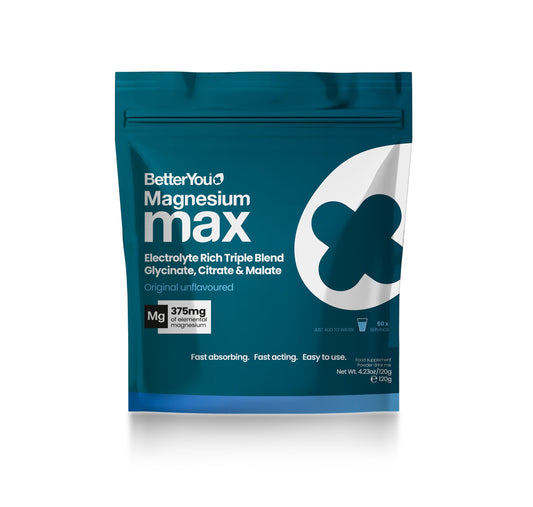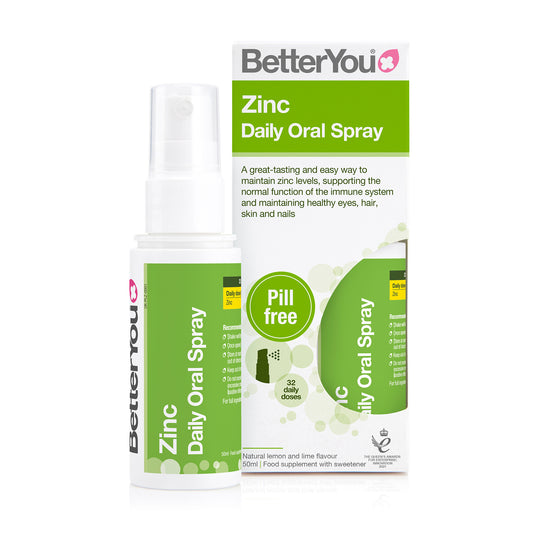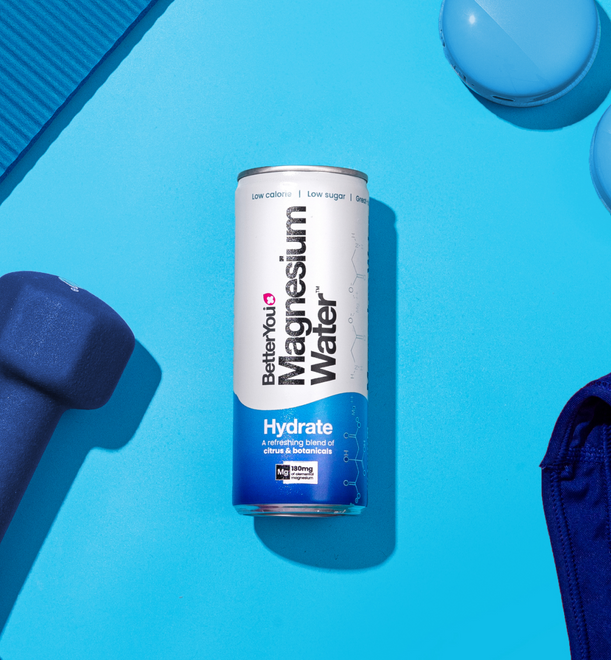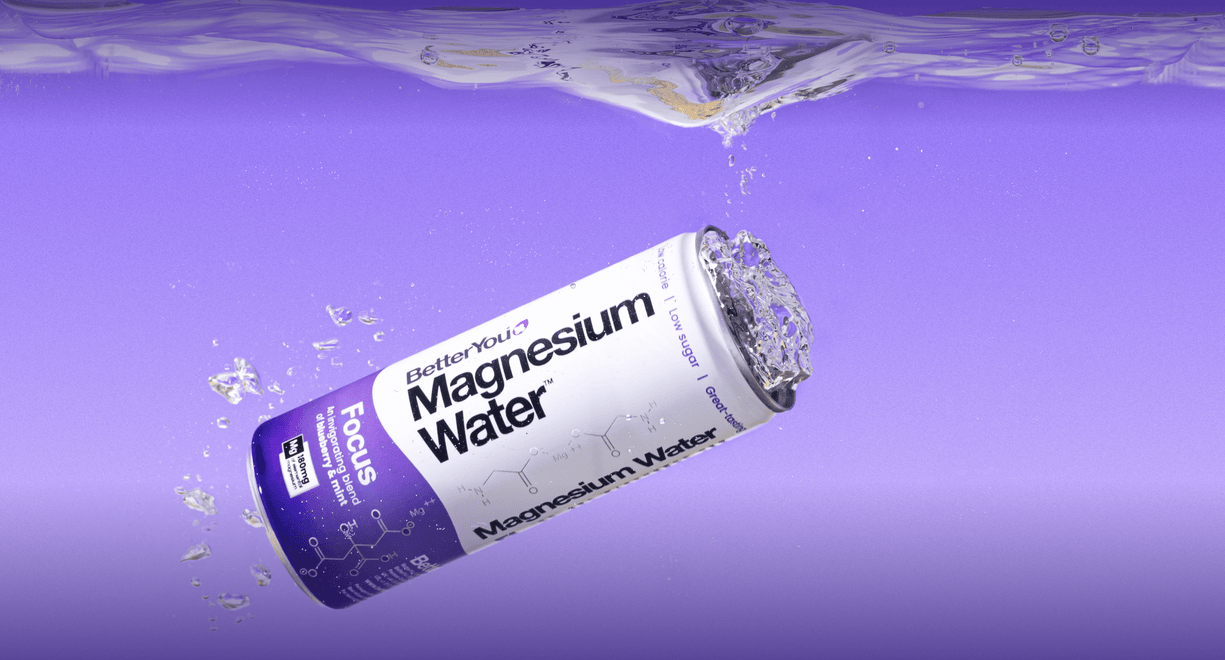The immune system plays a vital role within our bodies. It is made up of a number of organs, cells and proteins, which work together to protect your body from any harmful germs or substances, by triggering an immune response. When your immune system is working well, it can prevent germs from entering your body and, if harmful cells do get in, it can limit the harm they do. Learn how the immune system works, and which essential nutrients it needs to fight illness.
Table of Contents
- The Immune System: How it Works
- Key Parts of the Immune System
- Which Vitamins & Minerals are Good for the Immune System?
The Immune System: How it Works
The immune system is your body’s natural defence against harmful viruses and bacteria. It’s made up of a network of cells, tissues, organs and molecules that work together when your body is exposed to harmful germs. Your immune system is crucial for preventing infection and disease, and you can support it with immune system supplements.
The key purposes of your immune system are:
- Fighting disease-causing germs (pathogen) and removing them from your body
- Recognising and fighting substances from your environment
- Fighting disease-causing changes within your body
When elements your immune system does not recognise (known as an antigen) enter your body, it prompts an immune response, which helps to protect your body and get rid of harmful pathogens.
Once you have been exposed to a specific pathogen, your immune system learns about them and develops antibodies to protect you from them when you encounter them in the future.
When you are given a vaccine, your immune system is able to build antibodies to those foreign cells and will remember and destroy them if you are exposed to them again in the future.
The immune system is made up of two different subsystems which are closely linked and which work together when an immune response is triggered:
- Innate immunity – the immunity we’re born with
- Adaptive immunity – the part of our immune system that learns to fight the germs we come into contact with as we move through life.
Key Parts of the Immune System
The immune system is made up of a number of different parts that work together to protect your body from harmful germs and substances. These parts include:
Antibodies
Antibodies are the proteins produced by your immune system to prevent foreign germs, viruses and tumour cells (or antigens) from harming your body. If an antigen is found by your immune system, antibodies will be created which stick to and identify them so that they can be destroyed.
Thymus Gland
The thymus gland is a small gland situated in the chest between the lungs. It plays a key role in the functioning of the immune system by producing the hormone, thymosin, which aids T-cell production, a type of white blood cell. Once they’ve been created, these cells operate within other parts of the immune system once it’s activated.
The thymus gland is largest in children and produces and matures cells from before birth, through to puberty. Once you reach puberty, it begins to shrink as it has already produced all of the t cells your body will need.
Bone Marrow
Bone marrow is a crucial part of your immune system. Most of your body’s blood cells originate from bone marrow. Bone marrow contains immature cells that divide to form white blood cells (B-cells and T-cells).
Once the cells have matured within the bone marrow and thymus gland, they travel to the lymph nodes and spleen where they sit until the immune system is activated.
Spleen
The main function of the spleen is to act as a filter for your blood. It works by removing red blood cells that are old, malformed or damaged and allowing healthy cells to circulate throughout your bloodstream. Within your immune system, the spleen identifies unwelcome bacteria or viruses in your bloodstream.
Once a virus is detected, your spleen works alongside your lymphatic system and lymph nodes to create lymphocytes, which act as a defence against foreign germs.
Lymphatic System
The lymphatic system is a network of tubes placed throughout your body, which helps to rid your body of toxins, waste and other unwanted substances. The lymphatic system’s primary function is transporting lymph, a fluid that contains the white blood cells that are able to fight infection, throughout the body.
Lymph nodes form part of the lymphatic system and are the glands that help to monitor and cleanse lymph as it travels around your body. Your lymph nodes help to filter out any damaged or cancer cells and will help to attack and destroy any harmful bacteria that enters your body.
White Blood Cells
White blood cells are an important part of the immune system. These cells move through the blood and tissue in your body and attack and destroy germs in order to keep your body healthy. There are different types of blood cell, each with its own role within your immune system.
Which Vitamins & Minerals are Good for the Immune System?
Your body needs a number of vitamins and minerals to function properly and many of them play a role in your immune system too. These are beneficial vitamins and minerals which impact the immune system:
You also need to acknowledge nutrient reference values and adhere to safe upper limits, to ensure you get the recommended vitamin and mineral dosage to support your immune system.
Vitamin B12
Vitamin B12 plays a key role in the production of red blood cells, which are crucial for your natural defences. Therefore, vitamin B12 helps the functioning of the immune system.
Vitamin B12 is found naturally in a variety of animal foods including:
- Beef liver
- Fish
- Meat
- Poultry
- Eggs
Vitamin B12 is one of the supplements vegetarians should take and vegan should take this supplement. This is because vitamin B12 is not naturally found in a plant-based diet, though it is often available in fortified foods, such as cereal. Those with dietary restrictions can increase their intake of vital nutrients with vegan supplements and vegetarian supplements.
However, vitamin B12 is notoriously hard to absorb through the gut, even if you eat many of the foods listed above, so pill-free supplements may be the best way to ensure that your body receives adequate amounts of vitamin B12. You can find Vitamin B12 in supplements such as oral spray vitamins and it is also commonly found in multi-vitamin sprays too.
Vitamin D
Vitamin D is a fat-soluble vitamin that is mainly produced by your body when your skin is exposed to sunlight and vitamin D synthesis is triggered. It is also found in a few foods but it is very difficult to ensure adequate levels of Vitamin D within your body through diet alone.
Food sources can include:
- Fatty fish
- Cheese
- Mushrooms
- Fortified cereals and juices
Vitamin D contributes to immune system functioning and helps to strengthen it. It is important to ensure you get enough Vitamin D to help keep your immune system strong.
If you think you may be suffering from a vitamin D deficiency, you can test your vitamin D levels at home to find out whether you may need to take additional supplements. Vitamin D supplements can be found in the form of oral sprays, which can deliver the vitamin through the soft tissue of your mouth and allows for optimal absorption.
Vitamin E
Vitamin E is a fat-soluble nutrient that is found in a wide variety of foods such as:
- Vegetable oils
- Nuts
- Green vegetables
Vitamin E benefits the body by acting as an antioxidant. This means vitamin E boosts the immune system by helping to fight off harmful bacteria and viruses.
Iron
Iron is essential for many bodily functions and is needed for immune cell creation and growth. This is how iron helps keep your immune system healthy. Low levels of iron, or deficiency, can lead to a weaker immune system and leave you more vulnerable to illness, therefore iron supplements can help to improve your intake.
Your body does not produce iron on its own so it’s important to include it as part of your diet or through supplements. Foods that include iron are:
- Lean beef
- Chicken
- Beans and lentils
- Dark leafy vegetables such as spinach
Some people struggle to get enough iron from their diets alone so it’s possible to take iron oral sprays to help the iron get straight into your bloodstream. If you’re concerned about whether you’re suffering from an iron deficiency, you can take an at-home iron test to make sure.
Vitamin C
Vitamin C is a water-soluble type of vitamin with many health benefits. Vitamin C supports the immune system by contributing to the cellular functions of the innate and adaptive immune systems. As a water-soluble vitamin, your body will only keep a short reserve, so it’s important to take vitamin C supplements regularly.
You can also eat foods containing the vitamin regularly, such as:
- Citrus fruit, such as oranges
- Peppers
- Strawberries
- Broccoli
- Brussel sprouts
- Sweet and white potatoes
It’s important to include plenty of these foods in your daily diet to see vitamin C benefits. If you do still struggle to get enough vitamin C, most multivitamin supplements contain vitamin C, which can be an easier way to ensure your body has enough.
Zinc
Zinc is a mineral needed for the activity of over 300 enzymes in your body. Zinc benefits the function of your immune system, which helps to protect you from disease. It does this through its anti-inflammatory properties, which help to reduce oxidative stress use by free-radicals.
You can source zinc from foods including:
- Fortified cereals
- Whole grains, beans and nuts
- Milk, and other dairy products
- Oysters
- Red meat
- Poultry
Therefore, you can take zinc supplements to support your defences. This is also why zinc is often added to lozenges and cold treatments, to support your immune response.
Selenium
Selenium is one of seven essential minerals your body needs to stay healthy and work at its best. Selenium benefits your immune system too. The mineral contributes to the maintenance of normal hair and nails, as well as normal thyroid function.
Selenium is found in food sources, such as:
- Seafood and fish
- Muscle meats, including poultry, and organ meats
- Bread, cereals, brazil nuts and other grains
- Dairy products
- Eggs
Selenium supplements may contribute to your immune system by protecting cells from oxidative stress and free-radicals. Our Air Defence Oral Spray contains selenium, alongside vitamins D3, B6, B9 and B12 to minimise the effects of damaging free radicals and health effects of air pollution.
You can also help to boost back to school immunity for your little ones with our children’s immunity supplements range, which include selenium for this reason.
Vitamin A
Vitamin A is important for immune system functioning so making sure you have enough in your diet will help to keep it working as it should. Vitamin A is a fat-soluble vitamin that is naturally present in a wide range of foods, including:
- Beef liver and other organ meats
- Fish
- Green leafy vegetables
- Dairy products
It is also available in many multivitamin sprays to help ensure you get the right balance of vitamin A in your body. The vitamin contributes to normal skin, so is included in skin supplements, and supports your vision.
Supplementing with BetterYou
At BetterYou, we specialise in pill-free nutritional supplements. From energy supplements to provide a needed boost, to sleep supplements to help you get a peaceful night’s rest. Support your healthy lifestyle today.



















